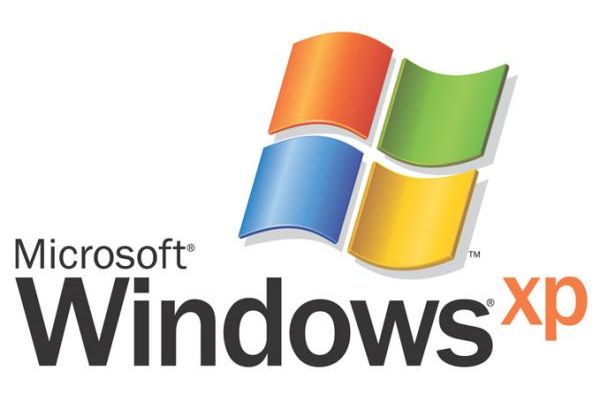Windows XP support shutdown countdown begins
Extended support for Windows XP ends in under 1,000 days, but will that drive corporates to move to Windows 7?

Windows XP's upcoming end-of-life means that some 200 million PCs will need upgrading or replacing.
That's according to Microsoft reps, speaking at the Microsoft Worldwide Partner Conference keynote in Los Angeles this week and writing on the Windows team blog.
Windows XP was removed from retail channels three years ago. It remained available through OEM channels rather longer though, and is still available as a 'downgrade' from Windows 7 for users unwilling to migrate to the newer version.
However, Microsoft says it will stop providing security fixes, updates and online tech support for the 10 year-old operating system on 8 April 2014.
For those determined to stay with Windows, the length of time needed to do large roll-outs means that the deathknell even though it is almost three years away is a call to action.
In a Gartner report last year analysts Michael A Silver and Stephen Kleynhans suggested that organisations planning to deploy Windows 7 needed to get XP out well before support ends, ideally by 2012 and certainly by mid 2013.
But XP's replacement does not have to be another Windows PC, of course. As well as alternative desktop operating systems Mac OSX and Linux, most obviously there are plenty of other ways to deliver information and applications to users, as Ovum principal analyst Richard Edwards noted.
Get the ITPro daily newsletter
Sign up today and you will receive a free copy of our Future Focus 2025 report - the leading guidance on AI, cybersecurity and other IT challenges as per 700+ senior executives
"Most businesses and institutions gave Windows Vista a wide-berth because of technical and compatibility issues, and so Windows 7 has quickly become the operating system of choice for new PC deployments," Edwards said.
"But with sales of tablet and thin-client computing devices growing rapidly, and alternative application delivery architectures starting to take hold, we believe that by 2014 many organisations will have decided to adopt alternative end user computing models; thus making Windows XP the last major corporate version of the Windows desktop operating system."
-
 Bigger salaries, more burnout: Is the CISO role in crisis?
Bigger salaries, more burnout: Is the CISO role in crisis?In-depth CISOs are more stressed than ever before – but why is this and what can be done?
By Kate O'Flaherty Published
-
 Cheap cyber crime kits can be bought on the dark web for less than $25
Cheap cyber crime kits can be bought on the dark web for less than $25News Research from NordVPN shows phishing kits are now widely available on the dark web and via messaging apps like Telegram, and are often selling for less than $25.
By Emma Woollacott Published
-
 Tiny11 review: Windows 11 with only 2GB of RAM
Tiny11 review: Windows 11 with only 2GB of RAMReview A version of Windows 11 for older machines that don't meet the full requirements
By Nik Rawlinson Published
-
 Red Hat Enterprise Linux becomes foundational operating system for Cohesity Data Cloud
Red Hat Enterprise Linux becomes foundational operating system for Cohesity Data CloudNews New strategic partnership between Red Hat and Cohesity aims to drive innovation in the data security and management space
By Daniel Todd Published
-
 Ubuntu shifts to four-week update cycle
Ubuntu shifts to four-week update cycleNews Critical fixes will also come every two weeks, mitigating the issues involved with releasing prompt patches on the old three-week cadence
By Richard Speed Published
-
 AlmaLinux follows Oracle in ditching RHEL compatibility
AlmaLinux follows Oracle in ditching RHEL compatibilityNews Application binary compatibility is now the aim with 1:1 now dropped
By Richard Speed Published
-
 How big is the Windows 10 cliff-edge?
How big is the Windows 10 cliff-edge?ITPro Network With some comparing the upcoming Windows 10 end of life to Windows XP, we ask members of the ITPro Network for their insight
By Jane McCallion Published
-
 Everything you need to know about the latest Windows 11 updates - from bug fixes to brand-new features
Everything you need to know about the latest Windows 11 updates - from bug fixes to brand-new featuresNews Two new cumulative updates are on the way and will be installed automatically on Windows 10 and Windows 11 machines
By Rory Bathgate Published
-
 How to download a Windows 11 ISO file and perform a clean install
How to download a Windows 11 ISO file and perform a clean installTutorial Use a Windows 11 ISO to install the operating system afresh
By John Loeppky Published
-
 We could all benefit from better Windows and macOS accessibility features
We could all benefit from better Windows and macOS accessibility featuresOpinion Today’s accessibility features can help you work through a nasty injury, but there’s still plenty of room for improvement
By Barry Collins Published